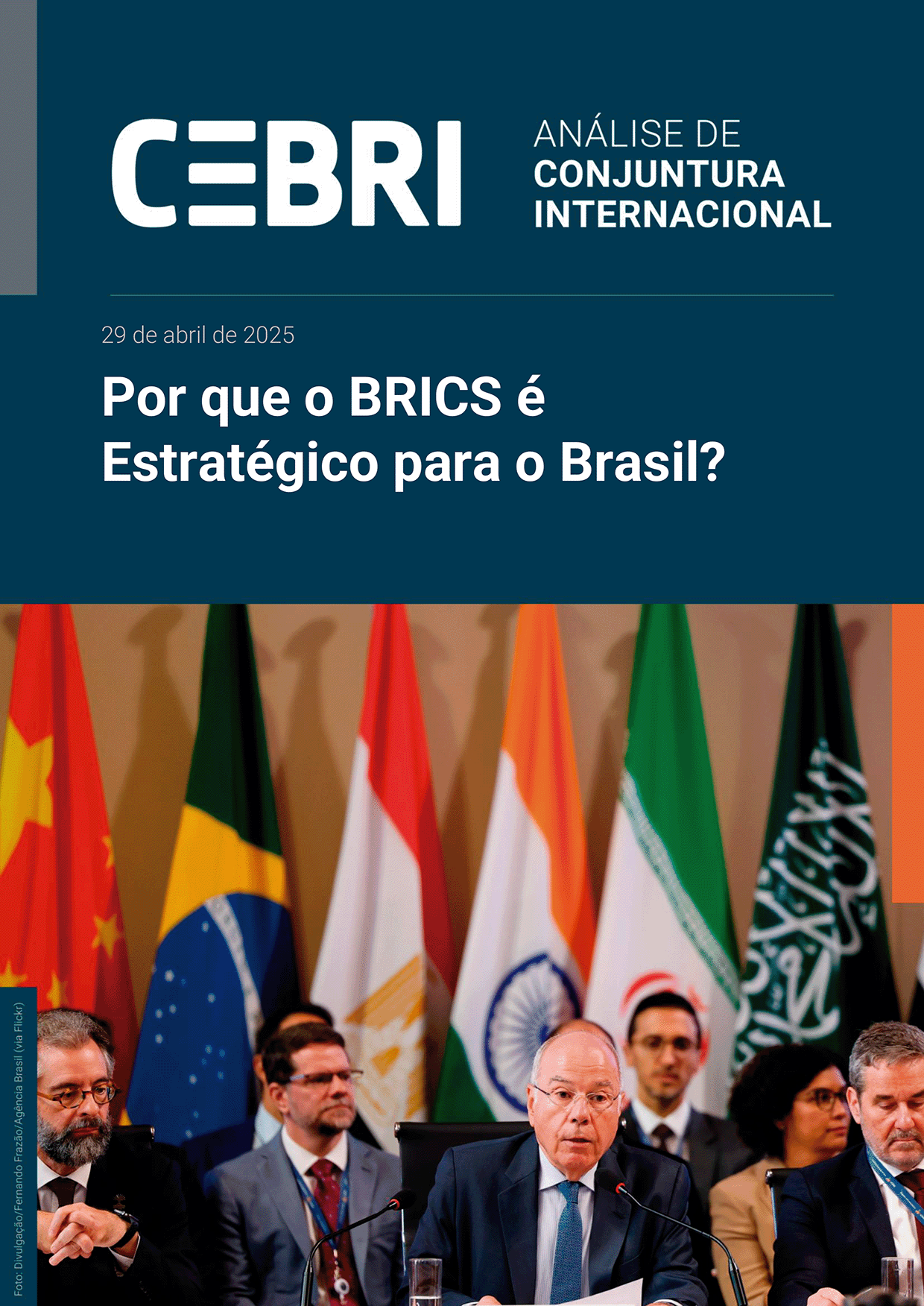Articles
Why is BRICS strategic for Brazil?
- 30 april 2025
The Brazilian Center for International Relations (CEBRI) presents its latest International Analysis, titled "Why BRICS is strategic for Brazil?" which examines the group's role as a vector for strengthening Brazil's strategic autonomy and global influence.
The publication, available in Portuguese, argues that BRICS - originally formed by Brazil, Russia, India, China, and South Africa, and since 2023 expanded with new members - represents a valuable platform for Brazil to diversify partners, access new markets and contribute to the reform of the international order.
In a scenario of global realignments, the text highlights Brazil's potential to lead relevant agendas during its rotating presidency in 2025 and the importance of pragmatic and balanced action in the bloc.
The main points of the analysis include:
- The role of BRICS as a bridge to Asia, Africa and other emerging regions;
- The expansion of Brazilian trade and exports in the context of the bloc;
- Opportunities in the new international financial architecture;
- Brazil's leading role in reforming global governance.
The text reaffirms that BRICS should be seen as an instrument of cooperation, not confrontation and that the plurality of alliances strengthens the national interest.
The Brazilian Center for International Relations (CEBRI) presents its latest International Analysis, titled "Why BRICS is strategic for Brazil?" which examines the group's role as a vector for strengthening Brazil's strategic autonomy and global influence.
The publication, available in Portuguese, argues that BRICS - originally formed by Brazil, Russia, India, China, and South Africa, and since 2023 expanded with new members - represents a valuable platform for Brazil to diversify partners, access new markets and contribute to the reform of the international order.
In a scenario of global realignments, the text highlights Brazil's potential to lead relevant agendas during its rotating presidency in 2025 and the importance of pragmatic and balanced action in the bloc.
The main points of the analysis include:
- The role of BRICS as a bridge to Asia, Africa and other emerging regions;
- The expansion of Brazilian trade and exports in the context of the bloc;
- Opportunities in the new international financial architecture;
- Brazil's leading role in reforming global governance.
The text reaffirms that BRICS should be seen as an instrument of cooperation, not confrontation and that the plurality of alliances strengthens the national interest.

